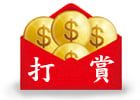中美貿易目前的情況是中國順差,美國逆差,而且這個數字還特別大。表面看來,中國向美國買了不少產品,搞的美國產業工人失業,工會組織逼的政府今天整個配額,明天整個反傾銷,為了減小中國的出口能力還整天請求中國讓人民幣升值。結果是美國到處是中國產品,中國外匯儲備越來越高,要變成世界工廠了。給人的感覺,就好像中國在步步進攻美國,美國只有招架之功而無還手之力。
但工會組織可不是美國的統治階級。為什麼美國國內反對聲音越來越大,美國產業轉移反而越來越嚴重,難道是美國政府沒辦法管了麼?其實真實的情況是目前這種中美貿易狀況對美國大大有利,這是華爾街日報一貫的立場,也可以說是美國的統治者真正的看法。今天該報有一篇文章《We Think, They Sweat》,說得再明白不過,簡直是赤裸裸的帝國主義言論,我不禁想起電視劇《走向共和》裡面李鴻章的一句台詞:「這才像是狼說的話嘛!」
文章並不長,以下我把其要點編譯一下,原文附在後面。
- - 作者首先提到蘋果公司現在的主打產品,mp3 播放器 iPod。現在美國市場上的這個產品是中國組裝,加州蘋果公司設計。這個東西無非是蘋果的軟體,很便宜的磁碟和一個價值12美元的晶元,該晶元由美國矽谷某公司設計,臺灣生產。
- - 整個 iPod 售價差不多 $265,其中的純利潤是怎麼分配的呢?負責組裝的中國公司的利潤大概只有4美元,設計晶元的公司利潤是5美元,蘋果公司的利潤:65美元。
- - 因為這個 iPod 的成功,過去一年蘋果公司的股票價格從 $21 漲到 $64.
- - 因為從中國「進口」 iPod,中美貿易中美方逆差增加了15億美元,而這15億美元的逆差造成美國國內財富的增加是160億美元。作者說,我願意天天要這樣的逆差,那些蘋果股票的持有者當然也願意。
- - 在這種情況下讓人民幣升值美元貶值有什麼意思?如果美元貶值,外國人在買美國的奔騰晶元,iPod,windows xp 和 oracle 資料庫的時候就獲得了一個「根本不必要」的便宜。根本沒必要把這些東西賤賣,因為反正他們為了運行自己的經濟不買也不行。"They have to buy them anyway to run their economies (well, maybe not iPods) so why discount?"
- - 作者說,美國願要保持強勢,美國要做高端。讓外國人做低收入的體力活,美國要做的工作是高科技知識產權,藥品,好萊塢電影,和 U2 樂隊。
- - 中國和日本兩國的外匯儲備大多又重新借給美國,買了美國的國債,對此作者是表示歡迎的。作者說,外國人差不多擁有全部美國國債的 43%,這樣一來我們就不用買了。誰想要只有 3% 匯報率的國債?我們要買應該買那些高利潤公司的股票。。。。。。。
- - 最後作者說,我們沒必要讓美元貶值,就讓中日兩國不停的購買美元資產吧,這樣他們才能使自己的貨幣保持低價,以便繼續向我們出口他們的工業產品。而我們靠向他們賣能更好的生產這些產品所需要的工具致富。
We Think, They Sweat
Andy Kessler. Wall Street Journal. (Eastern edition). New York, N.Y.: Dec 23, 2004. pg. A.10
You want a scapegoat for the dollar's almost daily decline -- the Chinese water torture on the U.S. economy? I blame Steve Jobs. Apple is the worst offender in the decline of U.S. manufacturing. Their engineers sit around in air-conditioned offices on streets with cutesy names like Infinite Loop in Cupertino, Calif., and have others make stuff for them. They imported two million iPods assembled by thousands of Chinese workers just last quarter -- an almost $1.5 billion annualized trade deficit in iPods alone.
Those in D.C. who can do something about this -- former railroaders and breakfast cereal moguls, are so worried about trade deficits that they refuse to defend the greenback, even begging China to unpeg the yuan from the dollar so we can decline against it as well. We're in a place called Vertigo. Economists weep that foreigners will no longer fund our spending and that America surely has peaked. The dollar is destined to the depths of despair until it drops so low that we get those manufacturing jobs back. Gee, thanks Steve Jobs.
I checked my wallet and realized that I own dollars, including my bank account, house and stocks. Lowering them in value hurts every American. I was in such a funk thinking about all this that I played my own infinite loop of Muddy Waters on my appropriately blue iPod mini. I happened to turn it over and read the fine print. Sure enough -- "Assembled in China." But it also says "Designed by Apple in California." In the middle of the song "Trouble No More," it all started making sense.
Over the last year, two things have happened. First, Apple has increased sales by over a third, almost all from iPods -- those two million of them at $265 each last quarter and 100 million songs sold via their iTunes service. An iPod is just the combination of some Apple software, cheap disk drives and a $12 chip from a Silicon Valley company named PortalPlayer. I calculated that Apple pays $200 per iPod to Chinese assembler Inventec to slap it all together. Even with cheap labor, Inventec has almost no profits, I'd bet under $10, probably more like $4. PortalPlayer, by the way, e-mails its design to Taiwan to be fabricated, with profits of $5 per chip.
The second change is that Apple's stock has gone from $21 to $64. Pretty cool, capitalism at its best. Why? Because Apple keeps $65 per iPod -- money chases profits! If you assume the stock-price increase is all due to the iPod (it is), then that business is worth some $15 billion. Add in PortalPlayer's market value of $1 billion and you get a feel for how the world works. A $1.5 billion trade deficit increases wealth in the U.S. by $16 billion. I'll take that trade any day. So will all the holders of the retirement accounts who own Apple's stock. So, why am I caring about deficits again? Trade deficits are an economic construct, and lowering the dollar won't solve a thing. We are moving low-margin, low-pay jobs overseas, but fortunately, are left with high-margin, high-pay intellectual-property jobs. Would you rather own Apple making a margin of $65 or Invetec with $4, on the same product? Me too. We may have trade deficits of $550 billion this year, but we enjoy a huge margin surplus.
The very illogical way (so no one believes it) to get this all back in balance is for the dollar to rise. A lower dollar means foreigners get a needless discount on our productive stuff -- Pentiums and iPods, Windows XP and Oracle databases, and Cisco routers. They have to buy them anyway to run their economies (well, maybe not iPods) so why discount? Add non-productive but life-enhancing intellectual property to complete the sweep -- drugs, Hollywood movies, U2. A weak dollar won't bring back manufacturing jobs -- with $20/hour here vs. $2 in China, the dollar would have to drop 90%. And why should we encourage low-paying jobs in this country?
Foreigners buy Treasury bonds -- they own 43% of them -- so we don't have to. Who wants 3% returns? We should own stocks of the high-margin companies that benefit from this design vs. manufacturing divide. As we move to an intellectual-property economy, our wealth will come from exporting profitable designs and importing more finished goods. Higher salaries and our stock market balance this all out as those dollars flow back in. Of course, bean counters can't find the money that flows into the stock market, it is just bean dip. The $4-trillion-plus in trade deficits since 1976 has been matched by an $11 trillion increase in value of our stock market. That's about all you have to know. Plus, as Jack Nicholson might say, they can't handle our dollars. Too many dollars in foreign central banks leads to overlending to wasteful domestic companies. Japan is just emerging 15 years later from a nonperforming-loan hangover. China is face-first in the punch bowl with half its bank loans uncollectible: If their currency spikes, it might go to 100%.
Rather than debase our wallets, Japan and China have to buy dollar assets to keep their currencies from rising too much if they want to continue to sell us their industrial output, while of course, we get rich selling them the tools to do it productively. I'd suggest thanking Bono, er, Steve Jobs, for the iPod economy.(文章僅代表作者個人立場和觀點)
- 關鍵字搜索:
- 華爾
看完那這篇文章覺得













排序